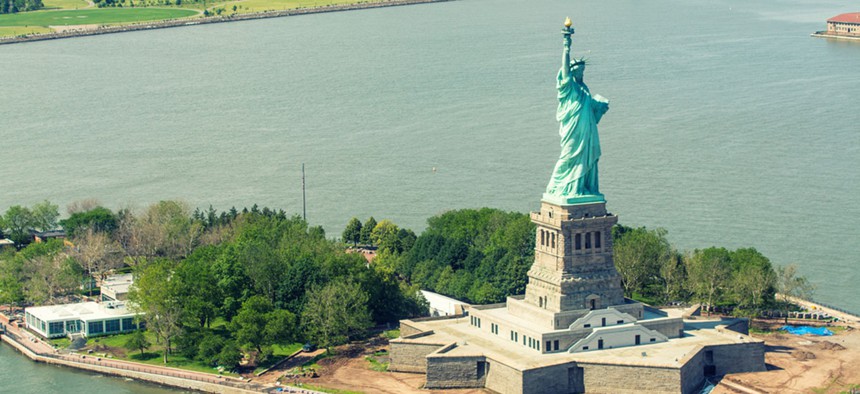
pisaphotography/Shutterstock.com
An Implied Visa-Application Question: Is Your Country Rich Enough?
The U.S., a new report suggests, is more likely to welcome foreigners from countries with growing economies.
When American consular officers interview people who want to visit the United States, they are like detectives, trying to find out someone’s true motive. Is this person really going to Disneyworld, or are they planning to overstay a tourist visa to work illegally in the United States?
In making their case, visa applicants submit evidence: Potential visitors need to provide bank statements, property records, and employment details to show the U.S government that they have enough money to support themselves during their trip, and that they have family and jobs waiting for them back home. A business owner with a spouse, children, and a house back home is more likely to be granted a tourist visa than an unmarried person with no children, no job, and no property. In fact, a presumption of deviousness is part of the law governing American visas: The Immigration and Nationality Act says that all applicants are assumed to have “immigrant intent,” so potential visitors have the burden of proving that they will actually return home.
The concern that tourists may overstay their visas is legitimate. After all, more than a third of undocumented immigrants in the United States arrived on temporary visas and never returned home, though they represent less than 2 percent of all visa holders. But this obsessive focus on a person’s financial status seems to make it less likely that poorer people will be allowed to visit the United States—for business or recreation.
A new report published by the Migration Policy Institute, a Washington-based think tank that studies international migration, shows how a country’s economic performance is linked to the likelihood that one of its citizens will be allowed to travel to the United States. The report found that the countries that experienced the strongest economic growth from 2006 to 2013 also saw some of the largest declines in visa denials for tourists and business visitors. The GDP of both Vietnam and Indonesia, for example, grew by more than 5 percent during that time and both countries also enjoyed sharp declines in the number of citizens whose visa requests were rejected. Other countries with strong correlations between GDP growth and lower visa denial rates were Brazil, Malawi, and Poland, likely because their economies were relatively isolated from the recession that gripped the United States during those years.
In the analysis, Miller compared real GDP growth to denial rates for tourist and business visas, which are the most commonly issued short-term travel permits, allowing foreigners to stay up to 6 months at a time in the United States. He found a correlation between both variables in all 152 countries he studied. Six countries (North Korea, Jamaica, Syria, Myanmar, Somalia, and South Sudan) were left out of the study because of missing GDP data. However, Miller suggests that national security concerns outweigh economic factors when approving visas for visitors from Middle Eastern and sub-Saharan African nations. For example, the economy of Iraq, Ghana and Egypt all grew, yet their citizens were denied visas at about the same rate as before.
This suggests that, ultimately, people from countries that are growing richer are more likely to be allowed to visit the United States, even though a country’s economy is not explicitly considered in individual visa applications. When an economy grows, so do individual incomes. This mean that people who want to vacation in the United States are less desperate to overstay their welcome, according to Karl Miller, a foreign-service officer with the State Department who did the analysis. “It is easier for an applicant to demonstrate convincingly that opportunities at home are such that he or she is likely to return,” he writes. “Conversely, if the economy is in severe recession or crisis, demonstrating convincing economic ties can be far more difficult.”
The study says a lot about about the dynamics of a globalized economy, though it is limited by the fact that the available data isn’t refined enough to differentiate between those traveling for business or for tourism, says Neil Ruiz, the executive director of the Center for Law, Economics, and Finance at the George Washington University Law School, which was not involved in the study. He says the increase in visa approvals that accompanies a boost in GDP is likely happening because companies grow as economies grow, and more people want to travel to the United States to do business.
If these growing countries are lucky, they may one day make it into the elite group of nations whose citizens can travel to the United States without a visa. There are currently 35 countries whose citizens can travel freely, for the most part, to the United States. Every time an applicant’s visa is approved, it boosts their country’s chances of one day joining the Visa Waiver Program. It’s probably no coincidence that those on the list also happen to be mostly in Western Europe, and among the wealthiest countries in the world.






